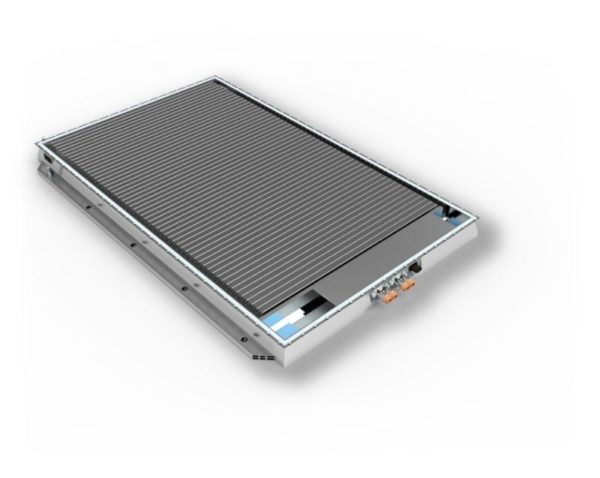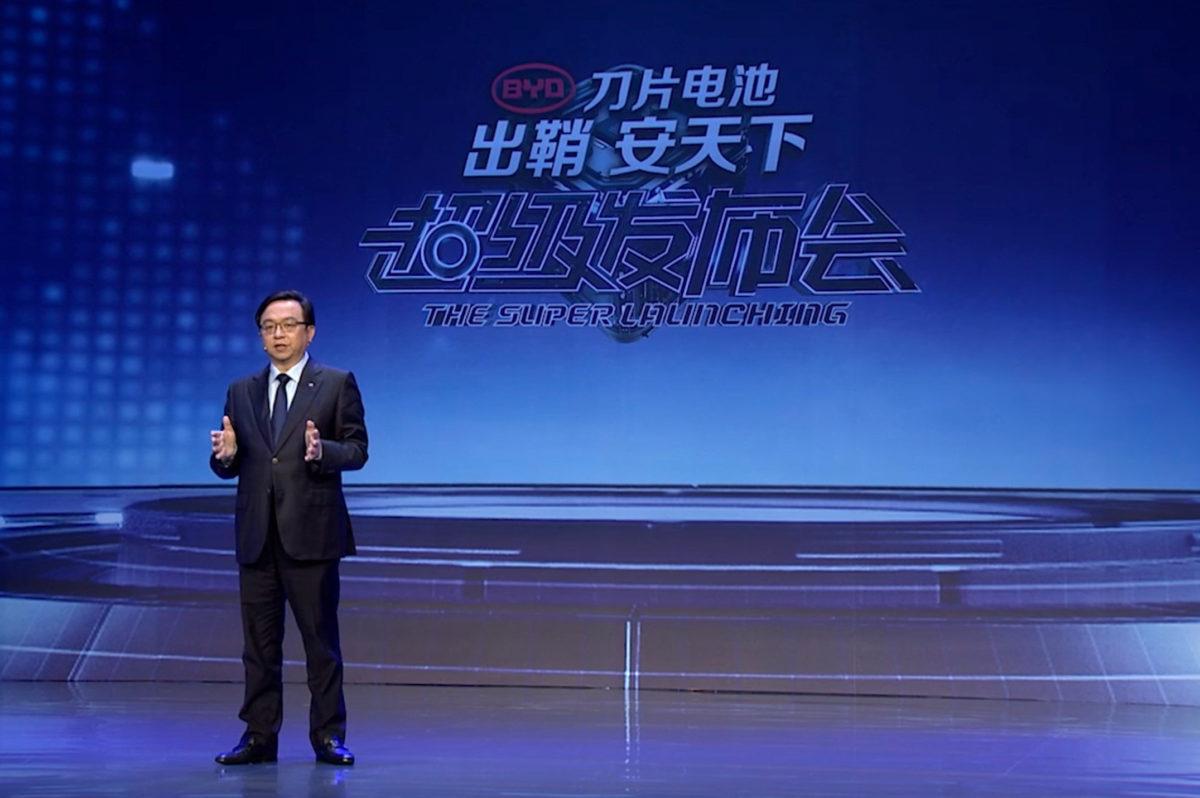With electrical vehicles (EVs) gaining more market share by the day, fire safety is an increasingly important concern as the lithium-ion batteries which power them can potentially become unstable and even ignite in certain circumstances.
Chinese EV manufacturer BYD has presented a new battery it says addresses the issue. The Blade Battery withstood the nail test its developer said is among the most rigorous examinations a battery can sustain. The device is pierced by a nail in a process which causes conventional lithium-ion batteries to become dramatically unstable.
The online launch event for the Blade featured video of the nail test taking place. The device withstood being pierced without visible smoke or flames. The surface temperature of the battery reportedly remained at 30-60 degrees Celsius. When BYD performed the same test with a nickel manganese cobalt battery it immediately began emitting fire and smoke and reached temperatures beyond 500 degrees Celsius. The manufacturer tested a lithium iron phosphate block battery which also became highly unstable and, although there was no visible fire or smoke, the surface temperature reportedly reached 200-400 degrees Celsius.
The Blade was also subjected to crushing and bending and was heated in a furnace to more than 300 degrees Celsius and overcharged 260%. None of the tests prompted an explosion, according to BYD.
The company said the space inside the Blade battery pack has been optimized so it can be used 50% more efficiently than that of a conventional lithium iron phosphate block device.

Image: BYD
He Long, vice president of BYD and chairman of sub-brand FinDreams Battery Co Ltd, said the Blade requires a particularly high ignition temperature to set off thermal runaway – which occurs when higher temperature causes a destructive feedback loop to raise heat still further. He said the device releases heat comparatively slowly, generates little heat during operation and can prevent oxygen release during breakdowns. The latter feature would mean the battery could prevent itself igniting quickly.
BYD said multiple vehicle brands have approached it with a view to forming technology partnerships.
This content is protected by copyright and may not be reused. If you want to cooperate with us and would like to reuse some of our content, please contact: editors@pv-magazine.com.




Thanks for the article. BYD announced a few days ago plans to ramp up the production to 20 GWh per year in China. Excited to see which OEM is also opting in for the LFP cell to pack technology.